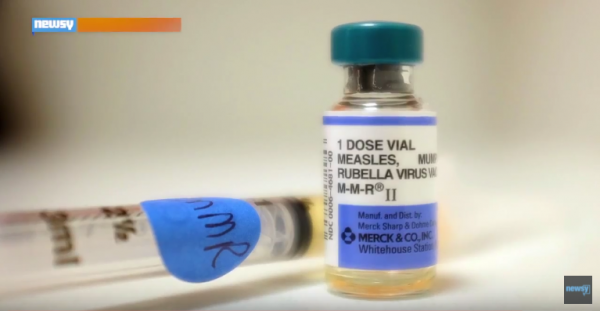By Prei Dy, | April 10, 2017

A new study found that a certain protein called PorB could enhance vaccines efficiency to fight against diseases like cancer, HIV, and influenza. (YouTube)
An emerging study has led to the discovery of a protein that can enhance the efficacy of vaccinations and also provide protection against diseases like cancer, HIV, and influenza.
A team of researchers from Boston University's School of Medicine purified a protein called PorB, which is found on the exterior of a bacteria known as Neisseria meningidis. It was then used as an accessory to enhance vaccination, Hindustan Times reported.
Like Us on Facebook
Normally, vaccines can either increase the amount of antibody production or stimulate cytotoxic T cells to kill offending agents. But with the presence of the PorB protein, vaccines can achieve both.
"This study has wide implications as it cannot only be used to help the body identify and fight off bacterial infections, but it could also potentially help the body to use its own machinery to fight diseases like cancer, HIV, and influenza, before they have a chance to establish within the body," Lee Wetzler, the corresponding author, said.
Two experimental models were used for the study. For the first model, a vaccination with antigen and mixed PorB was used, while for the second model only the antigen was used. The model with the PorB protein showed a better and increased response to the vaccine antigen. This was proven by the increased number of activated cells in the lymph nodes and a gain in the production of cytotoxic T cells compared with the vaccination carrying only an antigen.
"The antigen formulation with PorB triggers a sequence of cellular events at the periphery and in lymphoid tissue that are critical for the establishment of protection to a broad array of infectious disease, and maybe for other diseases like cancer," Wetzler said.
The study, which was published in Scientific Reports, could offer new understanding into how vaccine enhancers work and how it could be used best.
-
Use of Coronavirus Pandemic Drones Raises Privacy Concerns: Drones Spread Fear, Local Officials Say

-
Coronavirus Hampers The Delivery Of Lockheed Martin F-35 Stealth Fighters For 2020

-
Instagram Speeds Up Plans to Add Account Memorialization Feature Due to COVID-19 Deaths

-
NASA: Perseverance Plans to Bring 'Mars Rock' to Earth in 2031

-
600 Dead And 3,000 In The Hospital as Iranians Believed Drinking High-Concentrations of Alcohol Can Cure The Coronavirus

-
600 Dead And 3,000 In The Hospital as Iranians Believed Drinking High-Concentrations of Alcohol Can Cure The Coronavirus

-
COVID-19: Doctors, Nurses Use Virtual Reality to Learn New Skills in Treating Coronavirus Patients
















